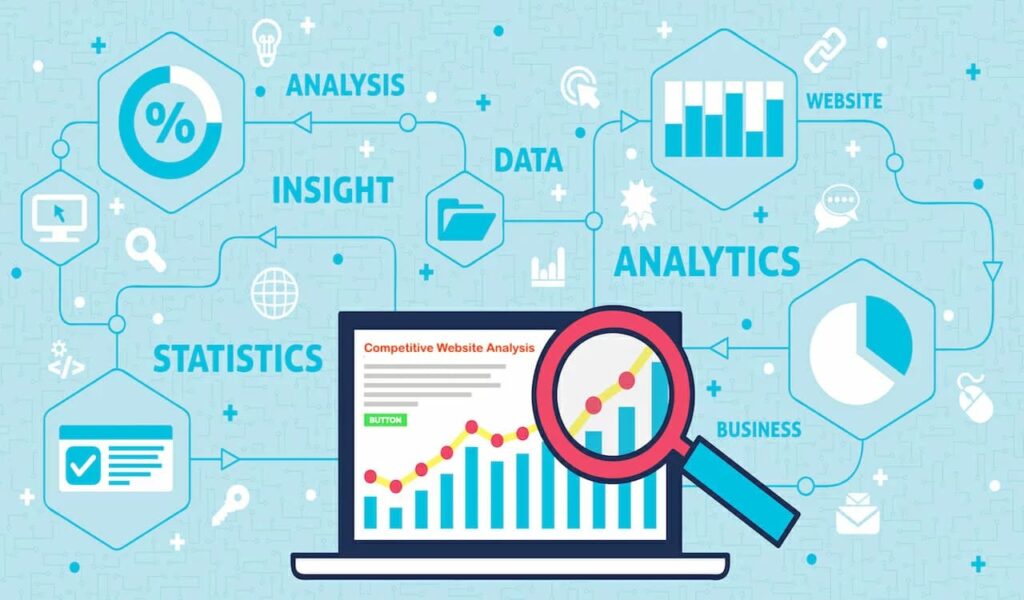Analyzing a website is a given for any business. It is important for many reasons. It aids a company in effectively understanding its target audience’s behavior. In this article, I will be discussing the ways how you can effectively analyze a website.
Keep reading till the end to find out more information on how to analyze a website!
Importance Of Analyzing A Website
A good form of website analysis would be able to tell you if the investments that you make are working. It would also point out the refinements that might need to be made for connecting more effectively with the prospects and the customers.
Just because the websites are dynamic, there is a need for staying up to date and adapting to the novel demands that arise. It is advisable to perform a strategic assessment of a site every quarter or even every month.
Process Of Conducting A Website Analysis
Here is a list of steps that you need to follow for ensuring that you conduct a thorough website analysis:
1.Identify Target Market
For understanding the effectiveness of the site, you need to be very clear about the people you are trying to reach. You need to look at the visitor demographics so that you can gain insight into the different buyer personas and types.
2.Understand Customer Journey
Visitors of different demographics may come to your site during varying stages of the journey of a customer. After you get to have an idea of the profile of the people who are visiting – you can take the necessary steps to ensure that the site is meeting each stage.
3.Design Optimization
All based on the previous steps, now you can look from a different angle at the way your website is structured. If you have some distinct user personas which you want to address, then you need to segment your site for streaming for people – all according to the content that they might be looking for.
4.Check With The Technical Aspects
Lastly, you would need to check the technical parameters and aspects that are there to be evaluated – like if all of the links are working or not, whether the site is protected, or if the website is fast and efficient enough for meeting the needs of the users.
Types Of Traditional Website Analysis
The traditional form of website analysis generally falls under the following four categories:
Competition
All businesses have their competitors who offer up similar services, products, and even similar experiences to the same target audience.
Competitive Analysis refers to the practice of identifying and analyzing rival companies and quantifying the threats that they pose. It also includes finding advantages and opportunities which can be uniquely leveraged in a business.
Search Engine Optimization (SEO)
An SEO analysis can take numerous forms, the most common ones of which include – backlink analysis, On-page audits regarding SEO, and SERP analysis.
The On-Page auditing regarding SEO is going to aid a website in checking for the prevalent issues regarding the technical aspects which can ultimately affect the performance of the search engine. Then when discussing SERP analysis, there are a lot of important aspects to it – keyword research being one.
Traffic
Web traffic analysis is going to aid you in monitoring the activity of visitors and the volume of your website. It is also going to determine the most successful pages and the techniques related to traffic generation.
Having an idea of where exactly your website is generating traffic from and how popular the pages are; which sources of traffic are known to convert better is going to help you effectively in building up a successful marketing campaign and then invest in resources just according to that.
Speed
Users do not like slow-loading websites as a result of which neither do the search engines. This is the reason why speed testing is the second most important area for making a website load faster.
There are various tools available out there that aid in analyzing the speed of a website. One such great tool is Page Speed Insights – it shows key metrics like FCP – that indicate the total amount of time that it takes for a browser to display the content.
Top Tools For Website Analytics
There are a lot of tools available out there which can help analyze a website, but here I will be discussing only the top tools which provide the service. Here is a list of the top tools which are needed for website analysis:
Hotjar
Hotjar is the only ever digital experience platform that provides effective visual behavior insights about a site. One can focus on the growth of a website by using their industry-leading tools which are built with privacy in mind from the first day when they start using the tool.
Mixpanel
Mixpanel is another popular tool for website analytics. It is a self-serve product that helps its audience in converting, engaging, and retaining even more users. It would also help in matching your site’s qualitative and quantitative data, by providing qualitative insights through the Hotjar integration.
Google Analytics
With this tool, a user can analyze which users stay – effectively aiding in improving customer retention. Google Analytics is a form of traditional analytics tool that provides customer and user data across all platforms and devices. This tool offers data that are event-based from different apps and websites.
To Wrap It Up!
It is very important to analyze a website as that would aid a business/brand in curating and tailoring their site according to the needs of their specific customers.
Thank you for reading up till here. I hope you found the information useful.
Have A Look :-




